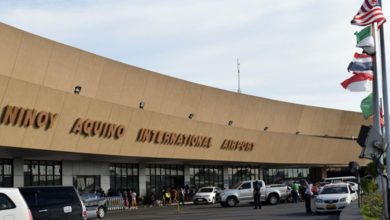Abu Dhabi’s non-oil foreign trade sector demonstrated agility and preparedness, reaching AED151.18 billion from January to September 2020, despite the COVID-19 pandemic.
The sector also distributed imports worth AED69.33 billion, exports worth AED55.37 billion, and re-exports worth AED26.48 billion.
The General Administration of Abu Dhabi Customs continued its pioneering efforts to continue the uninterrupted flow of supply chains, and protect the economy and society’s safety during the COVID-19 pandemic.
RELATED STORY: UAE economy on upward trend with third consecutive month of growth in consumer spending
These efforts were in line with the leadership’s directives to meet the requirements of the local basic commodities market for food and medical supplies, while applying the highest precautionary and preventative measures to maintain the health and safety of employees and inspectors working on the front lines.
The customs transactions completed by the General Administration of Customs of Abu Dhabi recorded around 788,699 transactions during the first nine months of this year, supported by the smooth completion of customs clearance operations and transactions.
Transportation methods were also diversified, with airborne trade accounting for AED51.35 billion, seaborne trade accounting for AED59.38 billion, and overland trade accounting for AED40.45 billion.
Rashid Lahej Al-Mansouri, Director-General of the General Administration of Abu Dhabi Customs, said that Abu Dhabi Customs, across all its sectors, adopted a strategic plan to ensure the continuity of supply chains’ flow and to facilitate the movement of trade across Abu Dhabi. This was achieved by the 24/7 work on all customs border centres while applying the highest precautionary and preventive measures to maintain the health and safety of employees and inspectors working on the front lines.
Abu Dhabi’s foreign trade helped diversify its global and regional markets, with the Kingdom of Saudi Arabia, KSA, registering trade between the nations amounting to AED32.22 billion, followed by the United States of America with AED10.70 billion, Italy with AED9.85 billion, China with AED9.83 billion, Hong Kong with AED7.24 billion, Switzerland with AED7.22 billion, Japan with AED6.61 billion, India with AED5.83 billion, the United Kingdom with AED4.11 billion, and Kuwait with AED4.08 billion.
Pearls, precious stones and precious metals accounted for the highest-grossing commodity, amounting to AED27.64 billion, showing a growth of 157 percent compared to the same period last year, which amounted to AED10.76 billion. This was followed by machinery, recording devices, and broadcasting images and sound equipment worth AED 25.26 billion – an increase of 10 percent compared to AED22.90 billion traded during the same period last year. Ordinary metals and their artefacts amounted to AED23.72 billion, followed by transport equipment amounting to AED 22.23 billion.
READ ON: UAE approves immediate support plan for businesses, economy
This was followed by plastics and their articles and rubber and articles worth AED12.72 billion, by-products of chemical industries and related products worth AED10.67 billion, food and beverage products worth AED4.79 billion, plant products worth AED4.38 billion, live animals and animal products worth AED3.80 billion, and mineral products worth AED3.54 billion.
During the third quarter of this year, Abu Dhabi’s non-oil foreign trade achieved growth of 10 percent compared to the same period last year, to reach AED55 billion, with imports of AED21 billion, exports of AED25 billion, and re-exports of AED9 billion.
Gold and jewellery contributed AED15 billion in the third quarter of this year in Q3, followed by machinery, appliances and electrical equipment and parts thereof, which amounted to AED9 billion. This was followed by minerals and their articles amounting to AED7 billion, and transport equipment amounting to AED5 billion.
The KSA maintained its leadership position as one of Abu Dhabi’s most important strategic foreign trade partners during Q3, with trade amounting to AED32.10 billion, followed by Italy with AED8 billion, Hong Kong with AED7 billion, the US with AED4 billion, and China with AED3 billion.
Abu Dhabi’s non-oil foreign trade passing through Abu Dhabi Customs ports during Q3 was also diversified across airborne trade amounting to AED23 billion, seaborne trade amounting to AED19 billion, and overland trade amounting to AED13 billion.




